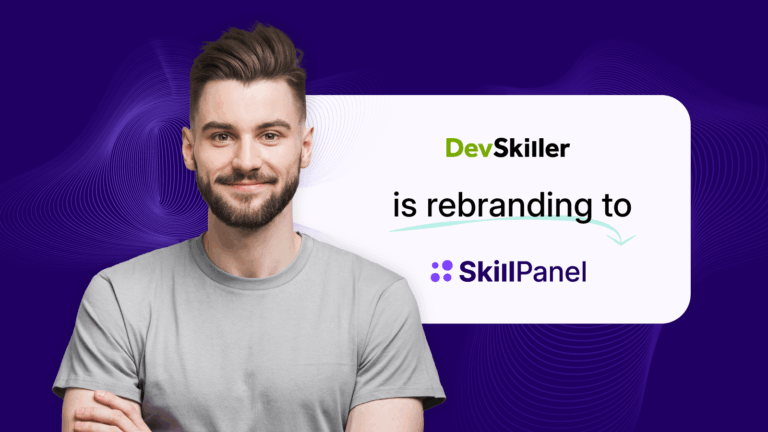
The guide for pre-employment assessments

Évaluations préalables à l'emploi have increasingly become an integral component of the contemporary recruitment process, serving as a vital tool for employers aiming to navigate the complexities of talent acquisition in today’s dynamic job market.
These assessments are designed to provide a structured and objective framework for evaluating the capabilities, personality traits, and overall suitability of candidates for specific roles.
Through a variety of methodologies, including skills tests, cognitive ability evaluations, personality questionnaires, and situational judgment tests, pre-employment assessments offer insights that go beyond the information typically gleaned from resumes and interviews.

This introduction aims to delve deeper into the nature of pre-employment assessments, shedding light on their definition, purpose, and the pivotal role they play in shaping the modern hiring landscape.
By leveraging these tools, employers can make more informed decisions, ultimately leading to better hiring outcomes and ensuring a stronger alignment between the candidate’s profile and the organizational needs.
Let’s take a closer look!
Employment Assessments
Pre-employment assessments, also known as pre-hiring assessments, are specialized tests or evaluations used to gather objective data about a candidate’s skills, knowledge, abilities, personality traits, and work style. Instead of relying solely on subjective impressions from resumes and interviews, employers use these assessments to gain a more comprehensive understanding of a candidate’s suitability for a specific role.
Pre-assessment tests for employment can be particularly valuable in high-volume hiring situations, where manually reviewing a large number of applications can be time-consuming and prone to bias. By automating the initial screening process, employers can quickly identify the most promising candidates to move forward in the hiring process.
This targeted approach saves time and resources while ensuring that only the most qualified individuals are considered for the position. Moreover, employment assessments can help mitigate the risk of unconscious bias, promoting fairness and diversity in the workplace.
Employment test types
It’s crucial to understand the different types of employment assessments available and their specific purposes. This understanding allows for informed decisions about which tests align best with a company’s needs and the requirements of the position. Let’s delve into some common categories and examples of pre-assessment tests for employment:
Solving skills
These employment assessments gauge a candidate’s ability to analyze information, solve problems, and make decisions. This category often involves tests like:
- Cognitive Ability Tests: These tests measure general intelligence, encompassing verbal, numerical, and logical reasoning skills. They provide insights into a candidate’s capacity to learn and adapt to new information.
- Critical Thinking Tests: Focusing on evaluating information and forming judgments, these assessments are particularly valuable for roles demanding analytical and problem-solving abilities.
Related skills
This category delves into specific skills directly relevant to the job, ensuring candidates possess the necessary expertise. Consider these examples:
- Technical Skills Tests: These assessments evaluate proficiency in specific technical areas, such as coding, software knowledge, or mechanical aptitude. They are essential when specialized skills are non-negotiable for job success.
- Software Skills Tests: As technology plays an increasingly vital role in various industries, these tests measure proficiency in using specific software programs or applications. This ensures candidates can seamlessly integrate into the existing technological landscape of the company.
Awareness
Beyond technical skills, understanding a candidate’s personality and how they might fit within a company culture is vital. This is where these assessments come in:
- Personality Tests: These assessments delve into a candidate’s personality traits, work style preferences, and how they interact with others. They offer insights into whether a candidate would thrive in the company’s environment and align with its values.
Situational Judgment Tests: By presenting candidates with hypothetical work-related scenarios, these tests evaluate their judgment, decision-making abilities, and how they respond to different situations. They provide a glimpse into a candidate’s practical approach to handling real-world challenges.
Technical skill assessments
Specific roles within organizations demand precise skill sets, making technical assessments an essential part of the hiring process for identifying candidates who possess the right competencies.
Évaluations techniques are designed to evaluate a candidate’s proficiency in the specific skills required for a job, ranging from coding and programming abilities in the tech industry to writing and editing skills in the content creation field, among others.
These assessments provide a practical and objective measure of a candidate’s capabilities, ensuring they have the technical expertise necessary to perform the job effectively.
Benefits of pre-employment assessments for employers
Employers benefit significantly from incorporating pre-employment assessments into their hiring strategies, achieving both immediate and long-term advantages:
Objective evaluation: These assessments minimize hiring biases by focusing on measurable skills and traits, ensuring candidates are selected based on their qualifications.
Better job fit: By evaluating technical skills, cognitive abilities, and personality, employers can identify candidates likely to succeed in specific roles, enhancing job satisfaction and retention.
Efficient hiring: Assessments streamline the hiring manager selection process by quickly identifying the most suitable candidates, saving time and resources.
Performance prediction: The insights gained can forecast a candidate’s potential success and growth within the company, aiding in strategic hiring decisions.
Reduced turnover costs: A good job fit means lower employee turnover, and saving on recruitment, hiring, and training expenses.
Legal defense: Objective criteria for candidate evaluation provide a defensible basis for hiring decisions, reducing the risk of legal challenges.
Cultural integration: Assessing for cultural fit ensures new hires align with company values and contribute to a cohesive work environment.
In summary, pre-employment assessments offer a pathway to more informed, efficient, and equitable hiring decisions, ultimately contributing to the overall success and stability of an organization.
Advantages for job seekers
Évaluations préalables à l'emploi offer job seekers significant advantages, including ensuring a better alignment with roles that suit their skills and interests, leading to greater job satisfaction and success.
They promote increased self-awareness by highlighting personal strengths and areas for improvement, aiding in career development.
These assessments also level the playing field, providing a fair opportunity based on objective criteria rather than subjective biases, which is especially beneficial for those less confident in interview settings.
When feedback is provided, it can guide candidates on how to enhance their employability.
Furthermore, completing these assessments validates a candidate’s skills, boosting confidence and potentially opening up new career paths.
Overall, pre-employment assessments can be a valuable tool for job seekers, offering clarity and opportunities for personal and professional growth.
How to implement pre-employment assessments in the hiring process
Implementing pre-employment assessments effectively is key to enhancing the hiring process.
A strategic approach ensures these tools are integrated seamlessly, providing valuable insights while maintaining a positive candidate experience. Here’s how to do it:
Define clear objectives: Begin by identifying what you aim to achieve with the assessments, such as understanding specific skills, cognitive abilities, or personality traits. Clear objectives ensure you select assessments that are relevant and aligned with the role’s requirements.
Choose the right assessments: Select tools that are scientifically validated and relevant to the job. Consider the role’s specific needs and the company culture to ensure the assessments are appropriate and beneficial.
Communiquer de manière transparente : Inform candidates about the assessment process, including what will be measured, how it fits into the hiring process, and how it benefits them. Clear communication enhances candidate engagement and reduces anxiety.
Integrate with the hiring process: Assessments should complement other selection methods for hiring candidates, such as interviews and reference checks. Plan when and how assessments will be used to inform decision-making without overwhelming candidates or delaying the process.
Train assessors: Ensure those interpreting assessment results are trained to understand and apply the findings effectively. Proper training helps in making informed decisions and providing valuable feedback to candidates.
Provide feedback: Whenever possible, offer candidates feedback on their assessment results. This practice can improve the candidate experience and provide developmental insights, regardless of the hiring outcome.
Review and adjust: Regularly evaluate the effectiveness of your assessment strategy. Seek feedback from candidates and hiring managers, and adjust the process as needed to ensure it remains relevant, fair, and aligned with organizational goals.
Implementing pre-employment assessments with a strategic and thoughtful approach not only enhances the hiring process but also contributes to a positive candidate experience and supports the selection of individuals who are well-suited to the role and the organizational culture.
The role of technology in modern assessments
Technology has fundamentally transformed pre-employment assessments, revolutionizing their design, delivery, and effectiveness.
Now accessible online, these assessments reach a global pool of candidates, offering convenience and broadening the talent search.
Adaptive testing tailors questions difficulty to the respondent’s ability, providing a customized assessment experience and more accurate gauging capabilities.
The advent of instantaneous results speeds up the hiring process, allowing for swift decision-making.
Enhanced security features, including digital proctoring, ensure the integrity of the testing process.

Furthermore, the introduction of gamification adds an engaging, interactive element to assessments, making them less intimidating and more enjoyable for candidates.
The use of data analytics and artificial intelligence in analyzing responses offers deeper insights into candidate suitability, improving the precision of hiring decisions. Technological advancements have also made assessments more accessible and inclusive, catering to candidates with disabilities and promoting fairness.
Seamless integration with HR systems like Applicant Tracking Systems and Human Resource Information Systems streamlines recruitment, enhancing efficiency and data management.
Through these innovations, technology has not only optimized the assessment process but also enriched the candidate experience and supported more equitable, informed hiring decisions.
Défis et limites
While pre-employment assessments offer numerous advantages to the traditional hiring methods and process, they also come with their own set of challenges and limitations. Acknowledging these aspects is crucial for a balanced understanding and effective use of these tools.
One primary challenge is ensuring the relevance and accuracy of the assessments. Not all tests are created equal, and some may not accurately measure the skills or traits they claim to, potentially leading to misinformed hiring decisions.
Employers must select scientifically validated assessments that are proven to be predictive of job performance.
Another concern is candidate experience. Lengthy or overly complex assessments may deter potential applicants, especially those with high-demand skills who have multiple opportunities.
Moreover, if the relevance of the assessment to the job is not clear, candidates might feel frustrated or disengaged.
Bias and fairness are significant issues as well. While assessments can help reduce subjective biases, they are not immune to them.
Biases can be embedded in the design of the test, such as cultural, gender, or socio-economic biases, which can disadvantage certain groups of candidates. Ensuring assessments are fair and inclusive is an ongoing challenge.
The legal implications of using pre-employment assessments should not be overlooked. Employers need to comply with employment laws and regulations, which can vary widely by region.
The assessments must be directly related to job requirements and administered consistently to all job candidates to avoid legal challenges.
Privacy and data protection are also critical concerns, especially with the increasing use of online assessments.
Employers must ensure that candidate data is handled securely and in compliance with data protection laws, such as GDPR in Europe.
Finally, over-reliance on assessments can be problematic. While they provide valuable insights predicting job performance, they should not be the sole basis for hiring decisions. Factors such as cultural fit, team dynamics, and candidate potential should also be considered to ensure a comprehensive evaluation.
Future trends in pre-employment assessments
The future of pre-employment testing is set to witness significant advancements, shaped by technological innovation and evolving workplace needs.
Artificial intelligence (AI) and machine learning are expected to refine assessments further, making them more adaptive, personalized, and capable of accurately predicting candidate success while minimizing biases.
As the importance of soft skills grows in an increasingly automated world, assessments will evolve to focus more on emotional intelligence, collaboration, and creativity.
Virtual reality (VR) and gamification will introduce more immersive and interactive ways to evaluate problem-solving and adaptability in real-world scenarios.
Ethical considerations, including fairness, privacy, and data protection, will become more pronounced, guiding the development and application of these tools.
The trend towards remote work will necessitate enhanced online and remote assessment capabilities, ensuring accessibility and integrity.
Moreover, the candidate experience will gain focus, with efforts to make assessments more engaging and reflective of an employer’s brand.
Continuous and on-the-job assessments may become more common, supporting ongoing talent development and alignment with organizational needs.
This approach, coupled with a stronger reliance on data for workforce planning, signifies a shift towards more strategic and integrated use of pre-employment testing.
In sum, the future promises a more innovative, inclusive, and strategic role for assessments in hiring and talent management.
Conclusion
Évaluations préalables à l'emploi are crucial in today’s hiring processes, offering a comprehensive way to evaluate candidates’ skills, personalities, and fit for a role, thus enhancing hiring accuracy and fairness.
These tools have evolved from simple skill checks to sophisticated evaluations, incorporating technological advancements for deeper insights and efficiency.
Employers benefit from reduced biases and better job fit, leading to higher retention and satisfaction, while candidates enjoy fairer opportunities and valuable feedback for growth.
Despite challenges like ensuring relevance and fairness, the future of pre-employment testing is promising, with trends towards more personalized, ethical, and engaging assessments.
As these assessments continue to adapt and integrate innovative technologies, they will remain indispensable in achieving effective, equitable hiring outcomes.




